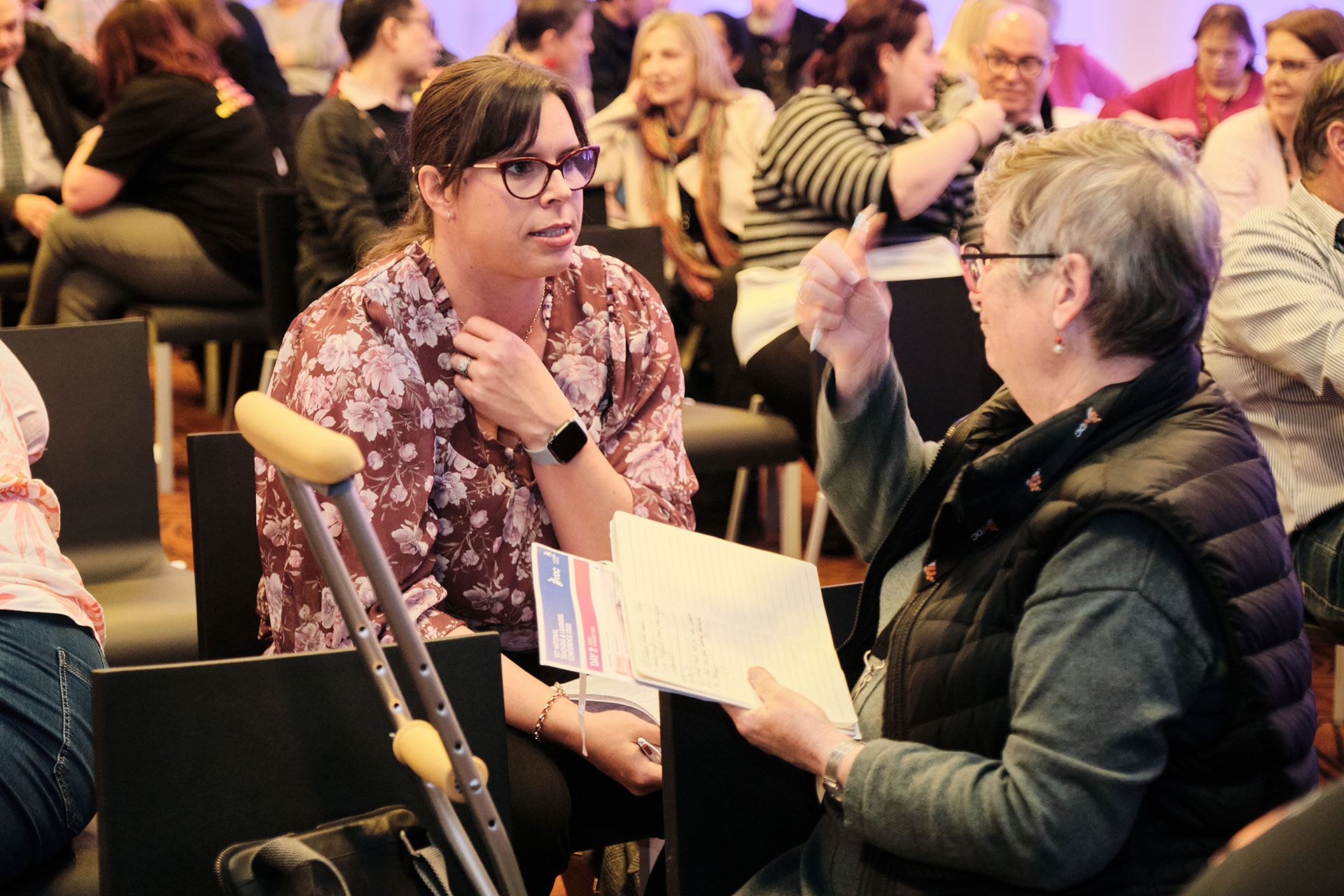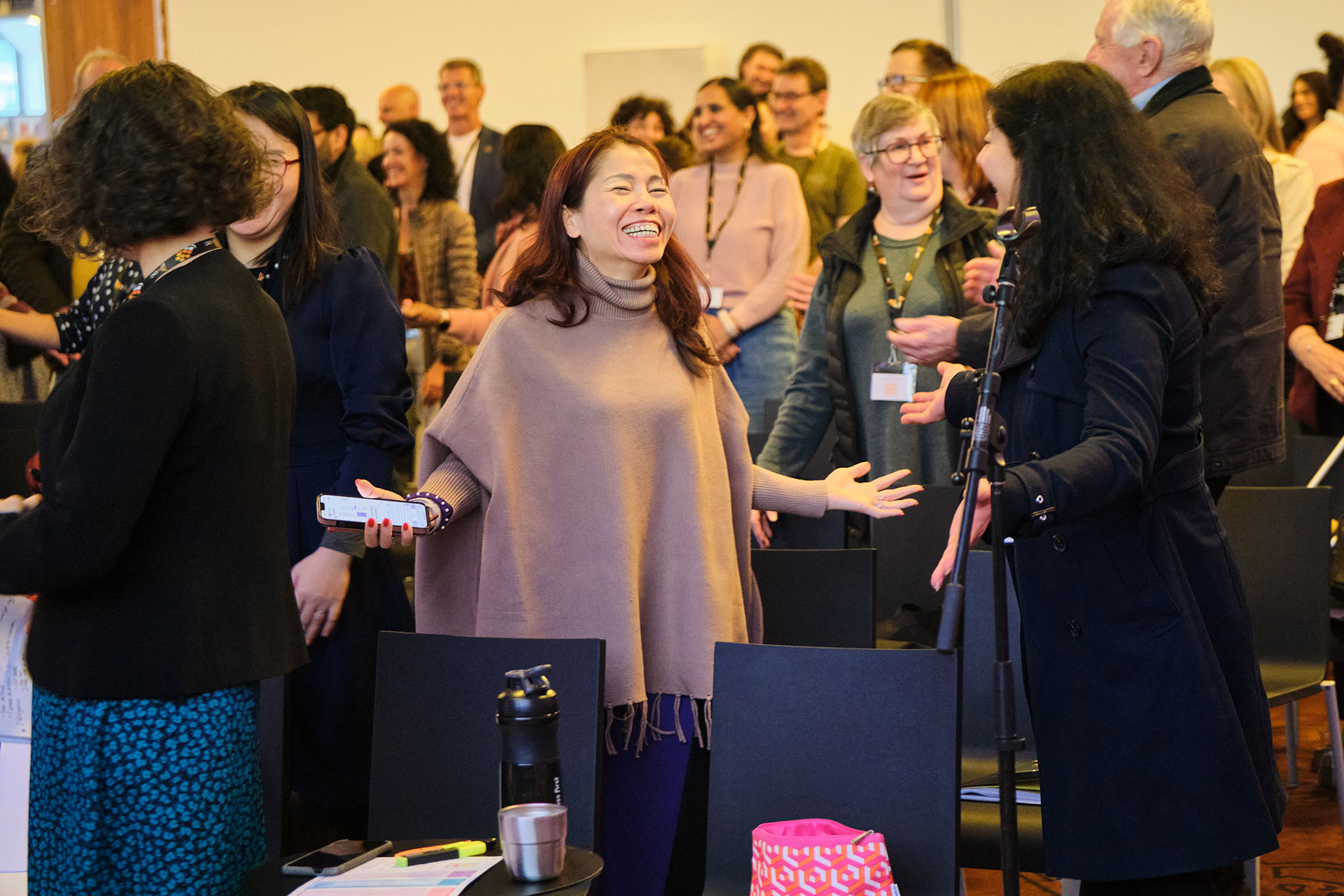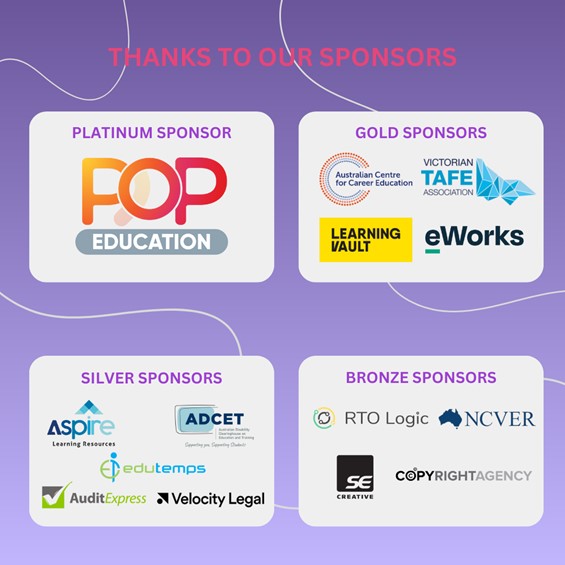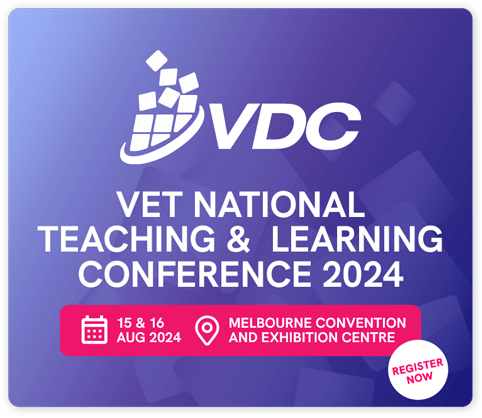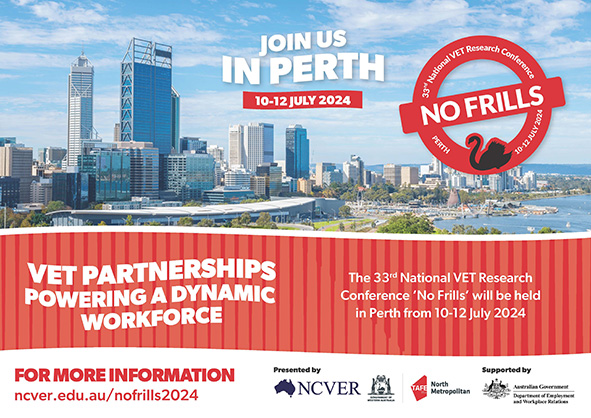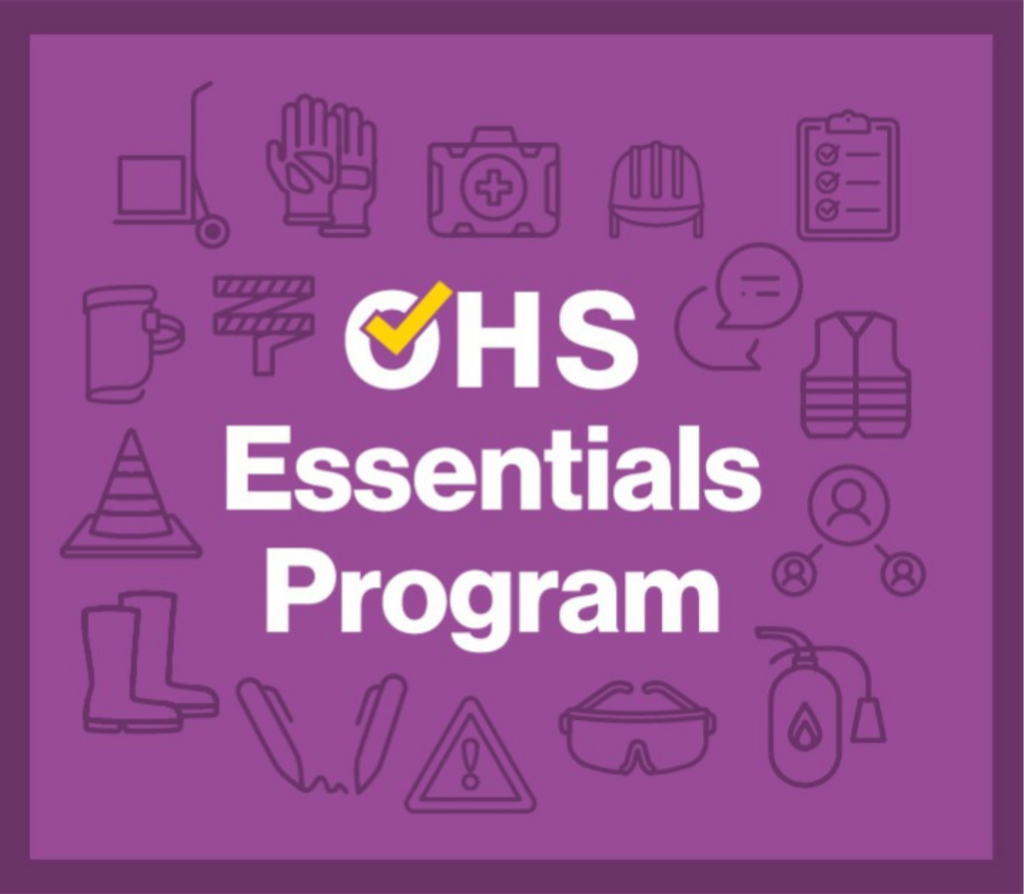The VDC held its annual VET National Teaching & Learning Conference in Melbourne recently over 2 days: the 17th and 18th of August. The theme was ‘From Competence to Excellence’ with the topic covered through a series of keynotes, research presentations, workshops and panel discussions.
It was no surprise that the event was a sell-out, with over 350 delegates as the conference had some pretty amazing speakers, so what I’ll try to do is capture in summary what I got out of it. Later issues of VDC News will feature research and other work the conference threw up. In addition, the national World Skills competition was running elsewhere in the venue. It impressively showcases the wide range and excellence of all that VET does to educate and train.
The bigger messages?
A range of consistent messages came from the presenters. What they suggested was that we need to:
- Make sure we are student centred in our approaches to delivery to enable our learners to achieve what they want to. But first, we need to understand WHAT they actually want and HOW they want to learn.
- Ensure that learning pathways are open, and especially those between VET and higher education.
- Aim for real excellence in what VET does. Many of the speakers pointed to important enabling aspects of that, including respecting the professionalism of VET teachers by trusting and empowering them.
- See teachers as encouraging and inspirational influencers. They also need to be passionate about what they do and help their students to be the best they can be by supporting them and passing on their knowledge, skills and a love of what the area in which they are teaching. But this teacher ‘passion’ can be dimmed by the ways the system and providers actually operate.
- Ensure that VET is seen as a viable option for learners, and particularly young people. Presenters suggested that parity of esteem with higher education is not the real issue, rather it is VET being esteemed in its own right for the important roles it plays and what it actually does.
Highlights from some of the keynote presenters
Jacqui Cooper, a 5-time Olympian and world champion aerial skier, reminded us that commitment to what we are doing and belief in yourself leads to excellence. So too does using our failures as real learning opportunities. They can be more powerful than getting things right all the time because this does not lead to useable feedback to help us improve. Having a good mentor is really helpful too, she thinks.
Susan James Relly, the newly minted Professor and Head of the School of Education at Adelaide University specialising in vocational education, pointed to the need for robust occupational standards to guide the journey to excellence, and highlighted those developed by the World Skills movement. She, like many others, highlighted the important role of VET’s teaching workforce in the journey to excellence. However, she also pointed to some challenges, not the least of which are that VET is a time poor sector which also lacks adequate funding for proper delivery.
Nasir Sobhani, best known as the hairdresser to the homeless, told us a bit of his life story, including being a member of an overachieving family and his feeling that he did not live up to expectations. His messages were the importance of having a feeling of self-worth and recognising the skills you have but, even more importantly, doing what we do in a spirit of service to others. This is a tenet of his Bahai faith which emphasises the importance of self-exertion and service to humanity.
Aimee Stanton (alias the Lady Tradie) is a plumber and small house builder. When she was starting out she found it very hard to get someone to even take her on and talked about the trials and tribulations of her first days on the job as a roofing plumber. She too emphasised the importance of teachers both in school and VET in providing encouragement and support. But she also felt that it was important that students ‘gave it a crack’ and had the attitude that they could do anything. Finally, she pointed to the value of the pre-apprenticeship she did.
Finally, Louise Mahler reminded us of the importance of our communication and body language skills in getting our messages across more effectively. While it was one of those ‘you had to be there to get the value’ sessions, it reminded me that while we are professional educators we are not necessarily good professional communicators, maybe even amateurs? What she suggested we need was to study and know ‘the tricks of the trade’ in using our body, gestures and voice and then practice and use them until they become second nature.
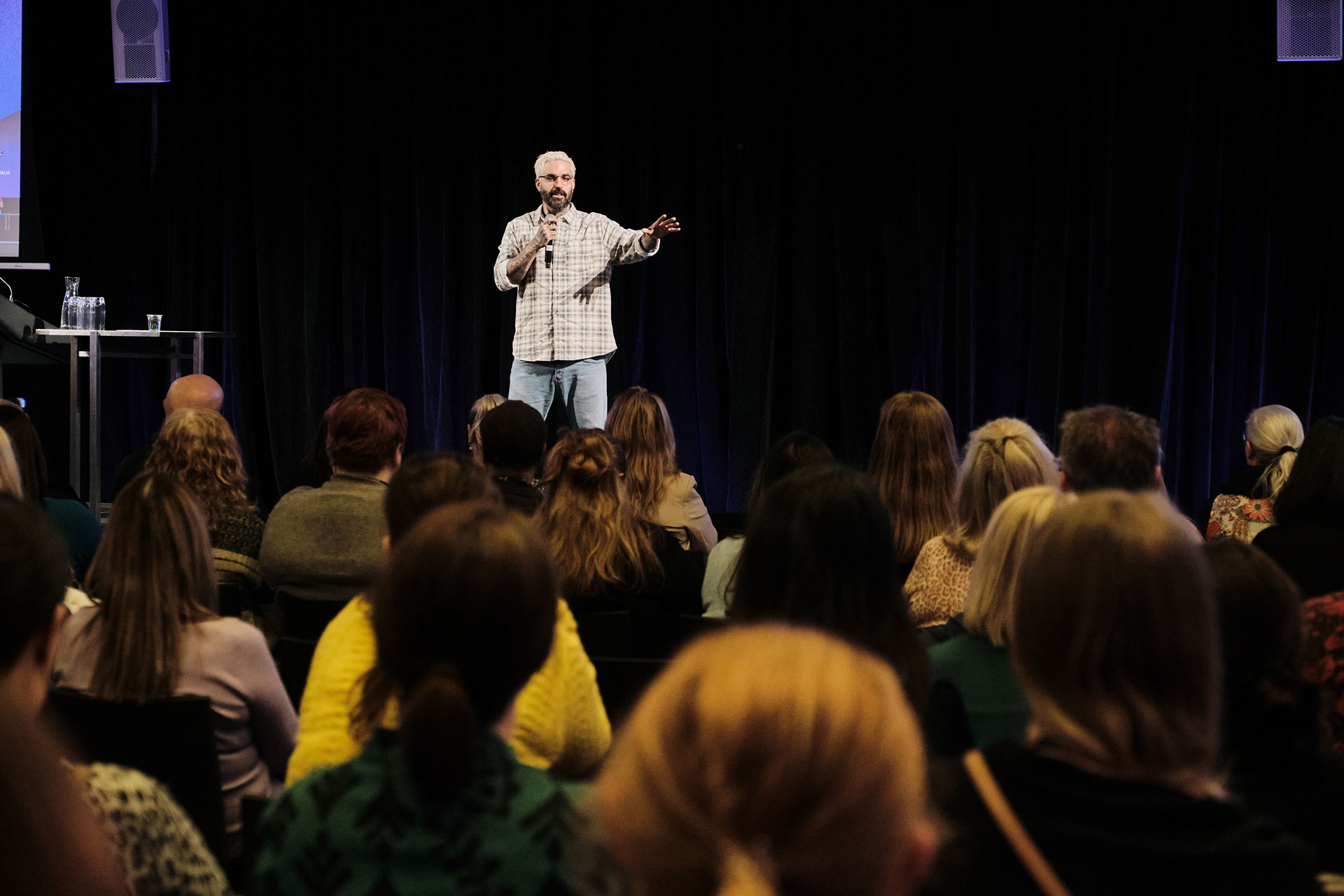
And in the research stream
Justin Brown, a researcher from ACER, described models for evaluating VET professional learning and development programs. He stressed the importance of having good data but, more importantly, pointed to the fact that in VET we can be ‘happy sheet happy’ in our evaluation approach (a ‘reaction level’ to assessing the value of professional learning) rather than asking more critical questions, such as how what has been learnt has impacted on our learners, how the professional learning is being is used in practice at work and how participants have changed and grown.
Anne Jones, an Emeritus Professor at Victoria University and board member of a large Victorian TAFE Institute, took a look at lifelong learning and the attributes of lifelong learners. The argument here is that giving our students the skills and desire to be lifelong learners is something that is quite important in VET’s approach to teaching and learning. The key characteristics of lifelong learners she outlined are that they:
- Are curious about learning new things
- Proactively take actions and seek opportunities
- Are skilled at applying knowledge in new contexts
- Reflect critically on, and learn from their experiences
- Persist despite challenges.
In essence, this summarises what we in VET have to do to empower and enable the ongoing success of our learners. Importantly, they are also the characteristics that VET practitioners need to be successful at what they do.
And in other presentations
Andrew Shea, a VET CEO and education expert, described the range and usage of innovative learning technologies – including virtual reality. As he pointed out, these do not replace teachers, but rather can help improve efficiency and the depth and retention of learning. In short, it’s about value adding to what VET teachers traditionally do. This is a line of argument the next speaker emphasised too.
Claire Field, an acknowledged VET and tertiary education expert, helped attendees think about the impact that Artificial Intelligence in its various forms – such as ChatGPT – would have on the sector and how we deliver programs, including to enable the delivery of personalised and adaptive learning. One of the initiatives she highlighted was Adaptemy, which is in use in Singapore.
There were workshops too!
Three in fact:
- ‘Creating Optimal Learning Environments: Strategies for Authentic Learning & Excellence’ By Vanessa Trower from Nexperk
- ‘Implementing design patterns for quality learner experiences: a TAE case study’ By Vicki Marchant from TAFE NSW, and
- ‘From Compliance to Excellence: Unleashing the Power of Academic Governance and Self- Assurance in VET’ By Kevin Ekendahl, CEO of Audit Express
We’ll try to feature the messages from these in an article in the next edition.
There were other really good things too!
First, there was a presentation by Liesel Fitzpatrick from the Copyright Agency in which discussed the issue RTOs face in ‘Cracking the Copyright Code’ and ensuring that they are meeting their obligations in the use of copyright materials.
Second, the research theme had two presentations from NCVER on what its research says about ‘All things Quality,’ and then ‘The Use of Online Delivery in VET.’ Rather than highlight these here have summarised the messages about online delivery in an earlier VDC News article and you can access the messages from this body of work here. The messages from Joy de Leo’s presentation entitled ‘All Things Quality in VET: What the research says’ drew on a range of NCVER work which we have highlighted in VDC News already. You can access the messages from this work in links here and here.
Summarising how to move from competence to excellence
This was the final session and involved a panel made up of Dr Justin Brown, Claire Field, Martin Powell (CEO of the VDC), Dr Susan James Relly, Andrew Shea and Dr Louise Mahler. The key question for this session was: ‘How Do We Move from Competence to Excellence’?
In essence, these experts told the conference audience that, to move from competence to excellence what was needed was:
- Developing a robust evidence base, and underpinning things with a sound and sustained research program. VET research capacity needed to be rebuilt, it was suggested
- More place-based delivery
- Being more student centred
- To overcome the continual and disruptive process of policy reform and change and getting a more settled view of what VET is and actually needs to succeed. Speak to and work with those who really understand the issues and can propose solutions
- Stop being reactive and start being proactive in terms of how policies and practices are developed and implemented
- Simplify things. It was pointed out that Germany’s ‘training package’ for hospitality runs to about 67 pages. Ours is 2,500 one panellist suggested!!
- Developing a greater sense of professionalism and professional identity for the VET teaching workforce
- More trust in providers and their staff to do what is needed
- Better access to CPD for VET providers and practitioners, including a decent induction for commencing staff
- Having a happy workplace and giving more attention to workplace culture in VET -and acknowledging that culture change takes time
- Having and using technologies effectively, and not just because they are there. Use them because they are useful, effective and serve a purpose. In short, keep an eye on things to ensure ‘future readiness.’
Finally, and if I also had to have a say, what is needed is to reconceptualise competence and what it means to be competent, so that it not only has a greater excellence focus, but also gives VET’s students the sustained capabilities they need to be effective learners throughout their lives and careers.
